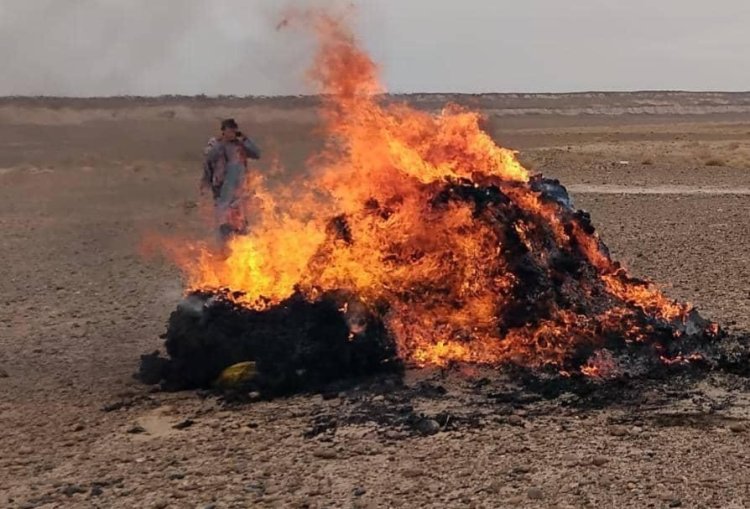Taliban burn 500 kilograms of women's hair in Nimroz

Local Taliban authorities in Nimroz province have announced that they burned 508 kilograms of collected women's hair in the Chahar Burjak district and sentenced one person to imprisonment for selling women's hair.
Sakhi Ahmad Jalali, spokesperson for the Taliban court in Nimroz, stated that this action was carried out based on a ruling by the district’s primary court.
This comes just two weeks after the Taliban’s Ministry for the Promotion of Virtue and Prevention of Vice set fire to 900 kilograms of women’s hair in the Deh Sabz district of Kabul.
The Taliban claim that these actions are taken to "preserve Islamic values and human dignity" and insist they were carried out with public cooperation. According to Article 18 of the Taliban’s Promotion of Virtue and Prevention of Vice law, the sale, use, and trade of human body parts—including kidneys, livers, eyes, and hair—are prohibited.
In recent weeks, Taliban authorities also arrested three individuals in Faryab province for allegedly purchasing and smuggling more than 100 kilograms of women's hair.
The Global Human Hair Trade
The trade of human hair is a multi-billion-dollar industry worldwide. In countries like India, China, and Myanmar, women sell their hair, which is then processed and sold on international markets for making wigs and hair extensions. In some regions of India, women donate their hair to temples as a religious offering, while in poorer areas, women and children are sometimes forced to sell their hair for survival. During the 19th and 20th centuries, impoverished women in France and Britain also resorted to selling their hair for financial support.
With poverty and unemployment on the rise in Afghanistan, some Afghan women have turned to selling their hair as a source of income. While many countries regulate and legalize this trade, the Taliban’s ban has further eliminated one of the last remaining ways for vulnerable women to support themselves financially.
